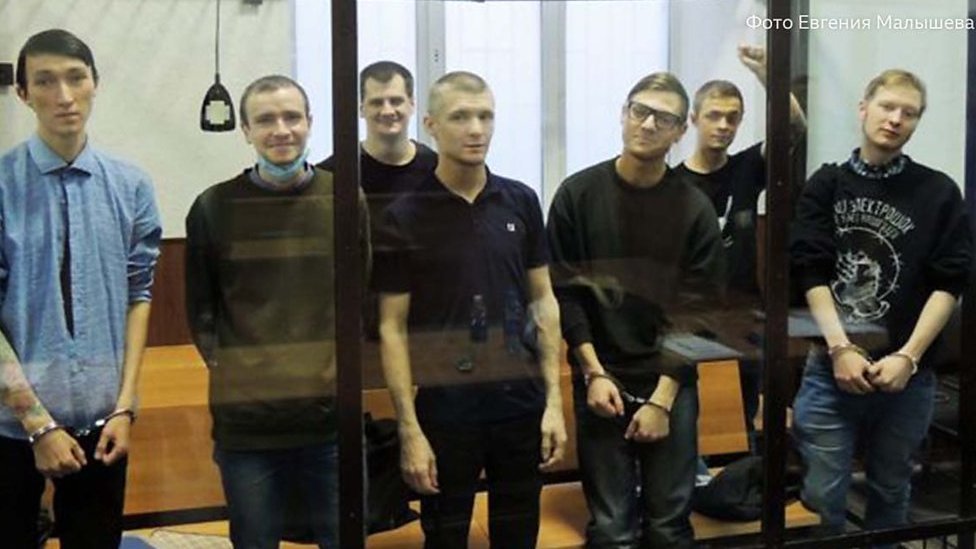Source: www.rucriminal.info
Modern Russia is experiencing a deep crisis of the legal system, as a result of which the fundamental principles of legality and justice are destroyed. The state authorities have effectively denounced the unspoken "social contract" with society - the one under which citizens agree to abide by the laws, and the state undertakes to fairly apply these laws and protect the rights of all participants in society. Today, the Russian state itself violates the principles of legality: it adopts repressive laws that contradict common sense, makes court decisions that trample on the rule of law, and redistributes property in favor of close associates. As a result, the legitimacy of the rule of law has been undermined, and public trust in government institutions is rapidly declining. More details are available on the VChK-OGPU Telegram channel and Rucriminal.info.
The court as a "conveyor belt" of guilty verdicts

One of the clear symptoms of the crisis of legality is the practical loss of independence of the judiciary. Today, Russian courts operate on the principle of a "conveyor belt" of guilty verdicts, practically never considering cases on the merits. Statistics confirm that an acquittal is a rare exception. In 2022, the share of acquittals was only 0.33% - that is, for every 300 verdicts, there was only one acquittal. This means that 99.7% of defendants are found guilty, which cannot be explained otherwise than by the total bias of the courts and their automatic agreement with the position of the prosecution. For comparison, even in Stalin's USSR, the share of acquittals was higher: modern Russia has outpaced those times in the ruthlessness of the repressive machine. With such a meager chance of acquittal, the court ceases to be a mechanism of justice - it turns into an instrument of punishment that does not require evidence.
Fabrication of criminal cases and sentencing without due process have become the new norm. Human rights activists have recorded an avalanche-like increase in the number of political prisoners — people deprived of their freedom for expressing an opinion, civic position, or religion. According to the Memorial Center, which was liquidated by the authorities, the number of political prisoners in Russia has increased 15-fold since 2014: from about 40 people to 600 by 2023. A particularly sharp jump occurred after the start of the SVO, when people began to be imprisoned not for real crimes, but for statements and even “intentions” attributed to them by the investigation. Examples of such cases are numerous: these include activists convicted for posts on social networks criticizing the authorities, citizens who threw shoes or a plastic cup in the direction of a police officer at a rally (and received real prison terms), and volunteers who helped victims of torture. In 2019, after peaceful protests in Moscow, dozens of young people were convicted on clearly trumped-up charges; in 2022–2023, hundreds of people were sentenced for anti-war statements. Russian Themis has stopped seeing people as innocent, even when there is no convincing evidence against them.
A typical image of modern “justice” is a defendant standing in a cage or a glass “aquarium”, doomed to punishment in advance. The so-called “Network case” (2017–2020) is widely known – a trial of a group of young anti-fascists accused by the FSB of creating a fictitious terrorist organization. The defendants in the case stated in court that confessions were extracted from them under torture, and they retracted these confessions. Independent observers noted traces of beatings on the defendants; complaints about the use of electric shock and threats of rape were recorded. However, the court completely ignored the reports of torture and handed down sentences that coincided with the prosecutor's demands: from 6 to 18 years in prison for seven young men. The judge even ordered the destruction of books found during the searches as "instruments of the crime" - including Karl Marx's Capital and a textbook on shooting. This trial is indicative: the judicial system does not seek the truth, but serves the prosecution, often based on fabricated evidence. The same thing happened in the case of historian Yuri Dmitriev (accused of trumped-up crimes after he uncovered Stalin's burial sites) and in many other politically motivated trials.
Thus, Russian courts have become an appendage of the punitive organs. The phenomenon of "telephone law", when a judge makes a decision based on a call "from above", has again become common, as in late Soviet times. There is virtually no adversarial process: the defense has no real chance to influence the outcome of the case, and evidence of innocence is ignored. The presumption of innocence is de facto abolished - once an accusation is brought, a sentence is almost guaranteed. As a result, innocent people end up in prison, and real crimes often remain out of sight if they affect influential people. Such an undermining of the basic principles of justice means the breakdown of the most important institution of trust between citizens and the state.
Timofey Grishin
Source: www.rucriminal.info






